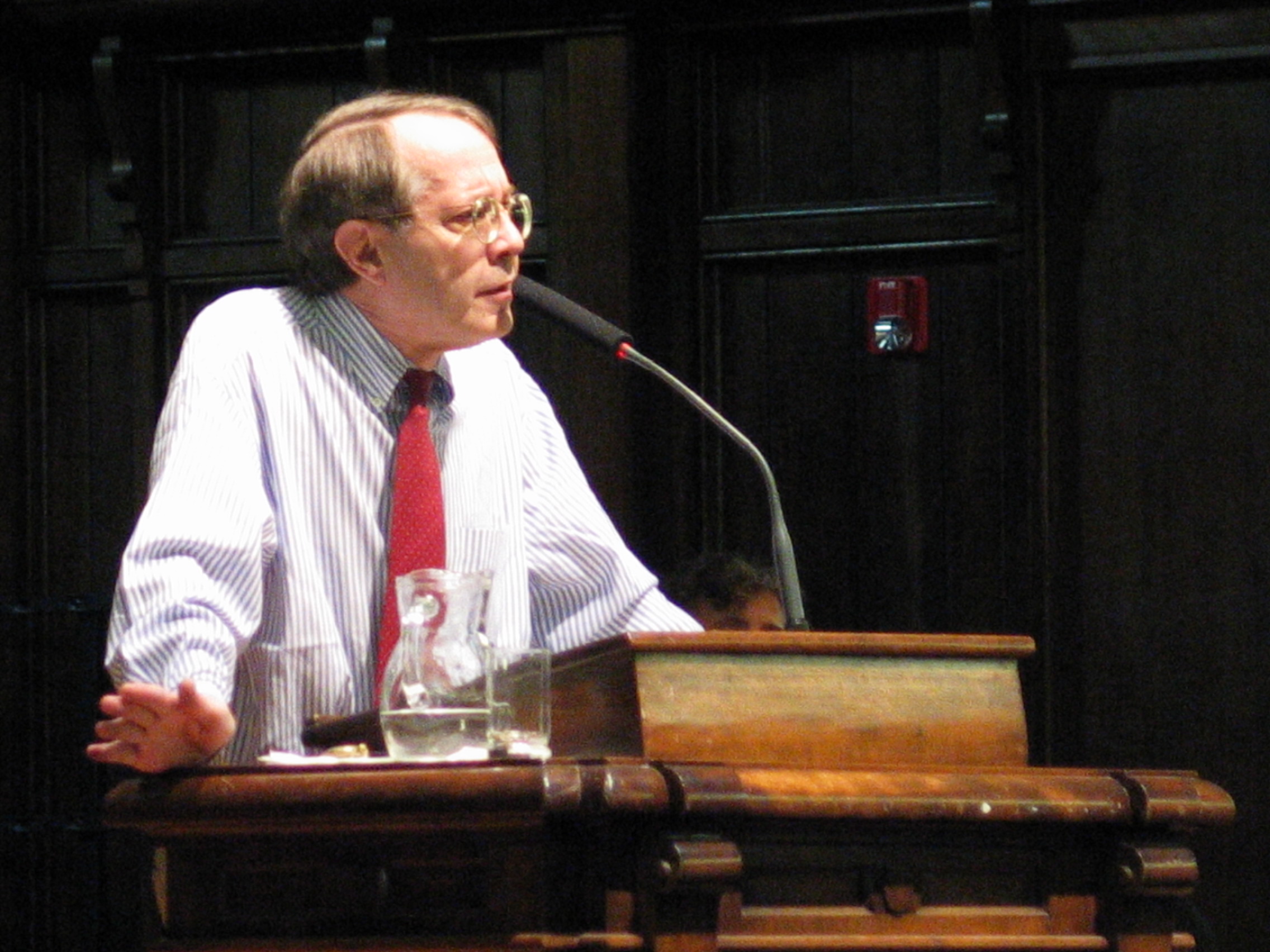 |
| Jonathan Kozol Tim / CC BY 2.0 via Wikimedia |
Jonathan Kozol was born in Boston in 1936 into a traditional middle-class Jewish family. Kozol's father worked as a neurologist and psychiatrist, and his mother was a social worker. Kozol attended Harvard and later Oxford as a Rhodes Scholar, and then lived in Paris in poor neighborhoods for several years while he worked on a novel.
A defining moment in Kozol's life occurred in 1964 when, shortly after returning to Boston to pursue an academic career, he heard about three young civil-rights workers who had been murdered by the Ku Klux Klan. He had never been political or had any involvement in race issues, but he was greatly affected by the news. Soon after hearing of this event he began working as a teacher in a freedom school that had been set up in a black church in a low-income, predominantly black area in Roxbury, just south of Boston.
 |
| Kozol at Pomona College BenFrantzDale / CC BY-SA 3.0 via Wikimedia |
Kozol has made a practice of leaving comfortable surroundings for more challenging, impoverished areas. He enjoyed teaching young children, and eventually got a job in the public school system in Roxbury teaching fourth grade. The segregated public school in Roxbury was very different from the school Kozol had attended as a child growing up in the wealthy Boston suburb of Newton. Shortly after he began teaching in the public school system, Kozol was fired for reading from a book of poetry by Langston Hughes that was not on the approved curriculum list. Soon after, he wrote his first work of nonfiction, Death at an Early Age: The Destruction of the Hearts and Minds of Negro Children in the Boston Public Schools, based on his teaching experiences in Roxbury. The book won the National Book Award in 1968.
Kozol's books often involve first-hand accounts of his experiences. His books serve to bear witness to social problems such as segregated and unequal schools, illiteracy, and homelessness. Often Kozol succeeds in humanizing abstract social issues by involving the reader intimately with particular individuals who are directly affected by these issues.
In his most recent book, Amazing Grace: The Lives of Children and the Conscience of a Nation, Kozol addresses the issues of race and poverty by exploring the lives of inner-city residents in the South Bronx. In a review for the Washington Post Book World, Marie Arana-Ward writes that it is "a powerful book that lays bare what is surely the ugliest truth about us: that there are pockets of hell in our inner cities, and that even as an entire sector of America is condemned to burn in them, we insist on looking the other way."
Kozol has said, "Of all my books, Amazing Grace means the most to me. It took the most out of me and was hardest to write, because it was the hardest to live through those experiences. I felt it would initially be seen as discouraging but, ultimately, sensitive readers would see the resilient and transcendent qualities of children and some mothers in the book-that it would be seen as a book about the elegant theology of children. That's what happened finally. The most moving comments about it also pointed to its moral and religious texture."
Kozol currently lives with his dog Sweetie Pie in a 200 year-old farmhouse in Byfield, Massachusetts.
Jonathan Kozol has received the following awards:
Rhodes Scholar, 1958-59; Olympia Award, 1962; Sexton fellowship in creative writing from Harper & Row, 1962; National Book Award, 1968, for Death at an Early Age: The Destruction of the Hearts and Minds of Negro Children in the Boston Public Schools; Guggenheim fellow, 1970 and 1984; Field Foundation fellow, 1972; Ford Foundation fellow, 1974; Rockefeller fellow, 1978 and 1983; Robert F. Kennedy Book Award, 1988; Conscience in Media Award, American Society of Journalists and Authors, 1988; Christopher Award, 1988, for Rachel and Her Children: Homeless Families in America; New England Book Award, and National Book Critics Circle Award finalist, both 1992, both for Savage Inequalities: Children in America's Schools.
Page created on 9/5/2012 11:45:32 AM
Last edited 8/26/2020 8:30:34 PM
Applebome, Peter. "At lunch with Jonathan Kozol; listening to the South Bronx." New York Times, October 25, 1995, Section C; Page 1.
Raney, Mardell. "Jonathan Kozol on today's children of poverty." The Education Digest, December 1998, 64 (4), 10-18.
"Jonathan Kozol; A concise summary of the author's life and works." Contemporary Authors. The Gale Group. May 17, 1999. http://www.galenet.com.
